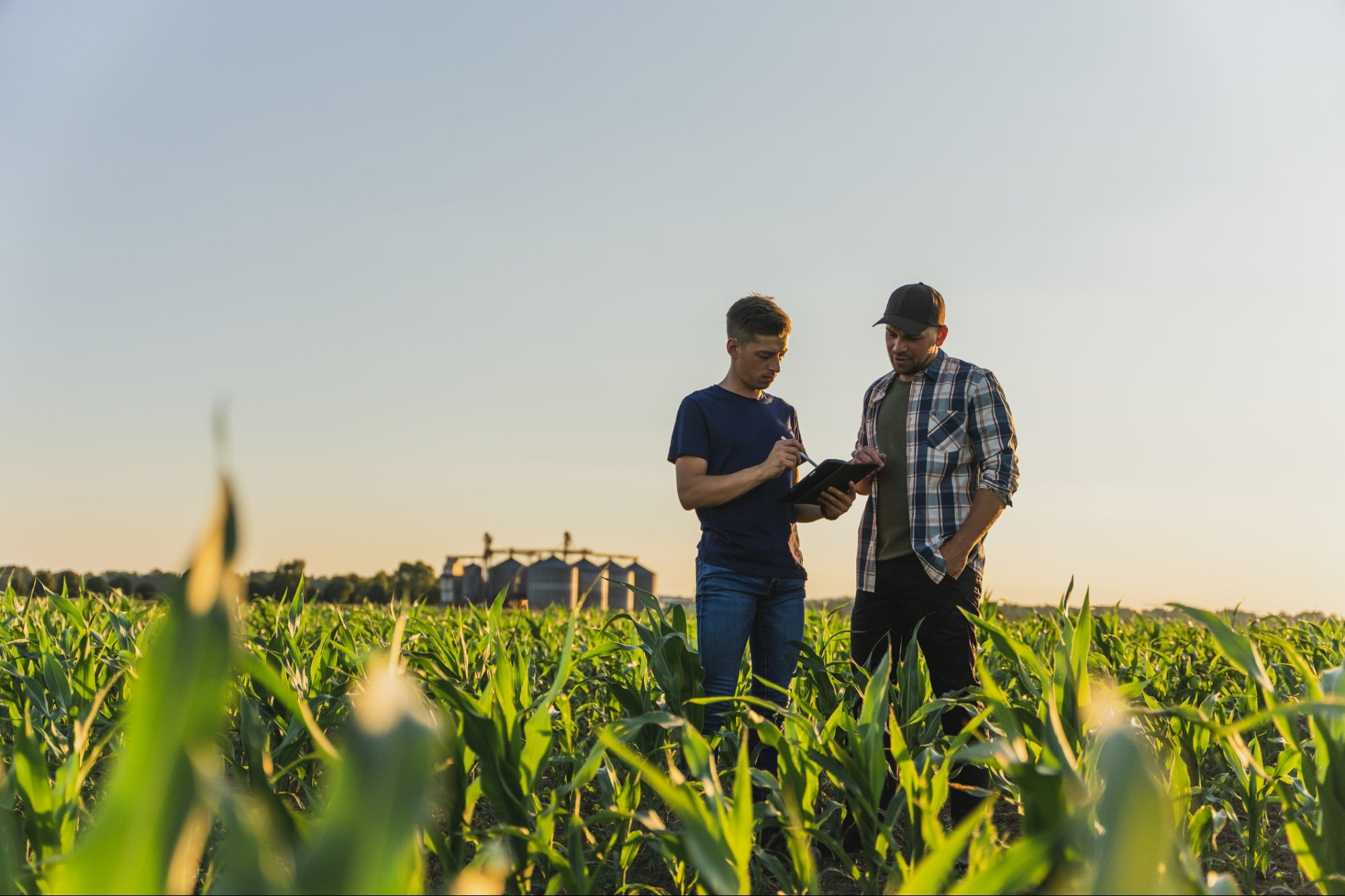Thinking of Starting an Agribusiness in Europe? Here Are 3 Things You Need to Know. Succeeding in European agribusiness takes more than passion.
By Arsen Khachaturyants Edited by Jason Fell
Opinions expressed by BIZ Experiences contributors are their own.
You're reading BIZ Experiences Europe, an international franchise of BIZ Experiences Media.

Europe's agribusiness landscape is as rich and diverse as its soil, and last year the European Commission allocated €185.9 million to promote sustainable and high-quality agri-food products, offering significant opportunities for BIZ Experiencess.
However, complicated regulations, changing consumer expectations, and an erratic climate also shape this industry. Extreme weather events driven by climate change are costing the EU's agriculture sector an average of €28.3 billion annually, equivalent to 6% of its total crop and cattle output.
Between strict EU food laws, climate concerns, and the unique tastes of local markets, succeeding in European agribusiness takes more than passion. It requires strategy, patience, and the flexibility to adapt when things don't go as planned.
As an BIZ Experiences myself, here are three insights I've learned that could help you in Europe's agribusiness sector.
1. A solution-first mindset is key
Before I founded my Florence, Italy-based olive oil business, I studied pure mathematics and earned my diploma at New York University, focusing on chaos theory and differential equations. While not a traditional route into the olive grove, the foundation has proven unexpectedly practical. It taught me that most problems have more than one solution, and if one isn't clear, it just means we haven't found it yet.
When I face decisions around growth or efficiency, I still lean on my mathematics training. Not necessarily through formulas, but through the problem-solving lens it instilled in me. The trick is treating the business like a system to optimize, not a problem to fear.
Let's apply this to the European market environment. Starting an agribusiness in Europe means working within a highly regulated market. The EU's Common Agricultural Policy (CAP) plays a central role, offering subsidies like direct payments and rural development funds. But those come with strict conditions regarding crop diversification, ecological focus areas, and environmental compliance.
Then there's the Farm to Fork Strategy—part of the European Green Deal—which is pushing for major sustainability milestones by 2030, including cutting pesticide use in half, reducing fertilizer use by 20% and making food traceability much more rigorous.
I don't mention these regulations to scare BIZ Experiencess away—figuring them out is part of the challenge. My background in mathematics allowed me to view these regulations not as barriers, but as opportunities to connect with a new generation of socially and environmentally conscious consumers.
That solutions-first mindset helped me realize that these short-term hurdles are long-term investments in protecting the planet.
2. Social media is a business and brand must
As an agribusiness founder, social media shouldn't just be on your radar but an integral part of your operational playbook.
Many of Gen Zs and Alphas are exclusively using social media to shop. In the UK, 76% of consumers plan to make purchases through TikTok Shop or Instagram Shopping in 2025. Yet, only 46% of online retailers allow purchases through social media platforms.
Research has shown that two in three consumers trust environmental claims on food packaging but seek more transparency. Therefore, agribusinesses need to prioritize transparency to allow consumers to fully comprehend the products they are using, and it's clear that consumer education should be a core component of social media marketing.
For example, in the olive oil market, many customers are misled into thinking that a mild, tasteless oil is the gold standard when, in fact, this is not the case. True extra-virgin olive oil should be aromatic, spicy, and even peppery, since these qualities point to a high polyphenol content and antioxidant properties. Yet, without suitable consumer knowledge, a sleek bottle and a viral post can easily fool consumers into buying an inferior product.
Since many consumers are seeking transparent information, agribusiness brands should demystify their products and educate consumers in engaging ways. Singling out your brand as a trusted source means forming meaningful relationships and connections with this consumer base.
Agribusiness BIZ Experiencess who can bridge this gap with transparency, education, and e-commerce integrations can turn attention into action.
3. Be patient and adaptive
Anyone entering the agribusiness industry needs to be patient. Otherwise, this may not be the right industry for you. Unlike tech, you can't iterate your way to faster growth. Nature moves at its own speed, and attempts to force it, usually with chemicals, often backfire. Not only do these shortcuts damage ecosystems, but they also risk alienating consumers who are increasingly demanding organic integrity.
Adaptability is also just as essential. You can't plan solely for success; you need a contingency built into your business model. In our own operations, we began with a vineyard plantation, and our first grape harvest in 2023 was nearly wiped out when a severe hailstorm hit, destroying 70% of our crop. That was six months of effort, undone in a matter of minutes, and it's in moments like these when you understand that you're in nature's hands. When the weather can rewrite your revenue projections within half an hour, having a Plan B and a Plan C isn't optional; it's a matter of survival.
Agriculture has never been easy, but today it's even tougher. Climate change is wreaking havoc on growing seasons, and big producers using chemicals often benefit from lower prices, putting pressure on smaller players. That's why patience, adaptability, and perseverance aren't just virtues; they're strategic advantages. Agribusiness BIZ Experiencess need discipline to stay true to their values and flexibility to pivot when nature, or the market, demands it.
European agribusiness demands more than a green thumb. Whether you're decoding EU food laws, countering misinformation online, or salvaging a harvest after unexpected hail, success depends on your ability to adapt without losing sight of your values. However, with the right mindset and a contingency plan in place, there's always a way forward.










